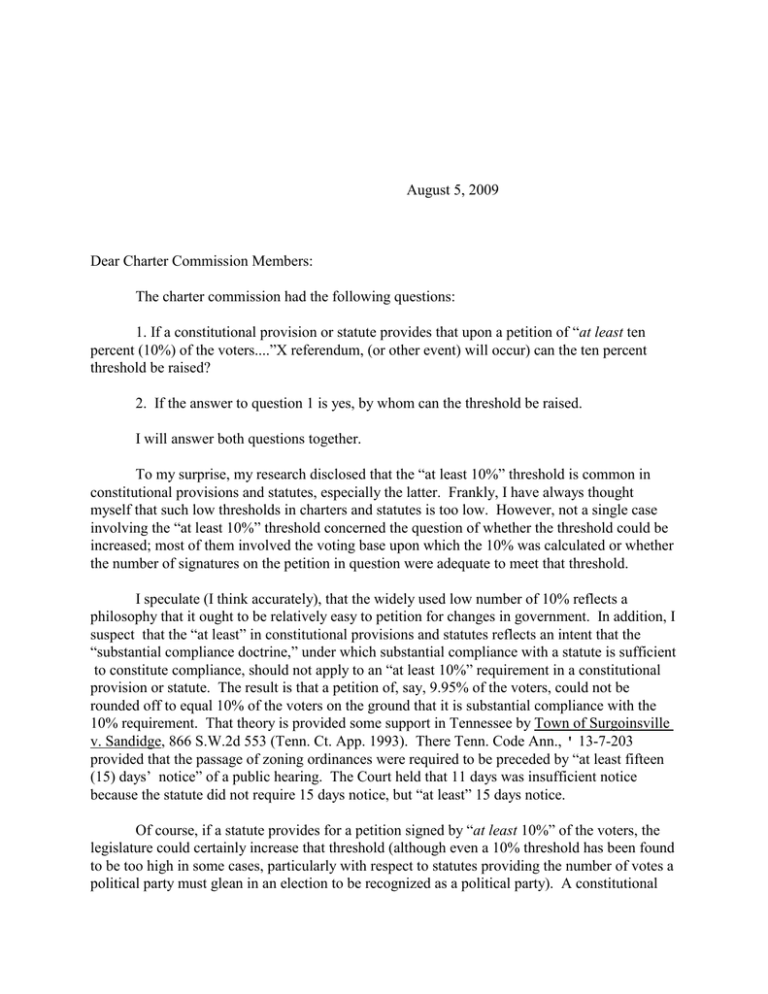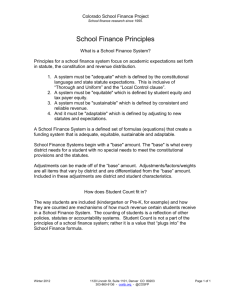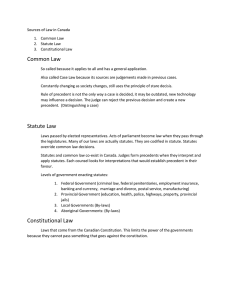August 5, 2009 Dear Charter Commission Members:
advertisement

August 5, 2009 Dear Charter Commission Members: The charter commission had the following questions: 1. If a constitutional provision or statute provides that upon a petition of “at least ten percent (10%) of the voters....”X referendum, (or other event) will occur) can the ten percent threshold be raised? 2. If the answer to question 1 is yes, by whom can the threshold be raised. I will answer both questions together. To my surprise, my research disclosed that the “at least 10%” threshold is common in constitutional provisions and statutes, especially the latter. Frankly, I have always thought myself that such low thresholds in charters and statutes is too low. However, not a single case involving the “at least 10%” threshold concerned the question of whether the threshold could be increased; most of them involved the voting base upon which the 10% was calculated or whether the number of signatures on the petition in question were adequate to meet that threshold. I speculate (I think accurately), that the widely used low number of 10% reflects a philosophy that it ought to be relatively easy to petition for changes in government. In addition, I suspect that the “at least” in constitutional provisions and statutes reflects an intent that the “substantial compliance doctrine,” under which substantial compliance with a statute is sufficient to constitute compliance, should not apply to an “at least 10%” requirement in a constitutional provision or statute. The result is that a petition of, say, 9.95% of the voters, could not be rounded off to equal 10% of the voters on the ground that it is substantial compliance with the 10% requirement. That theory is provided some support in Tennessee by Town of Surgoinsville v. Sandidge, 866 S.W.2d 553 (Tenn. Ct. App. 1993). There Tenn. Code Ann., ' 13-7-203 provided that the passage of zoning ordinances were required to be preceded by “at least fifteen (15) days’ notice” of a public hearing. The Court held that 11 days was insufficient notice because the statute did not require 15 days notice, but “at least” 15 days notice. Of course, if a statute provides for a petition signed by “at least 10%” of the voters, the legislature could certainly increase that threshold (although even a 10% threshold has been found to be too high in some cases, particularly with respect to statutes providing the number of votes a political party must glean in an election to be recognized as a political party). A constitutional August 5, 2009 Page 2 provision is another matter. In Tennessee, Washington County Election Commission v. City of Johnson City, 350 S.W.2d 601 (1961), stands for the proposition that home rule cities can fill in some of the blanks with respect to questions left open about home rule charter commissions elected under Article XI, ' 9 of the Tennessee Constitution. But the “petition for such election signed by the qualified voters of a home rule municipality not less in number than ten (10%) percent of those voting in the then most recent general municipal election,” is probably not subject to change by the General Assembly because it probably goes to the fundamental question of how easy it is to propose changes to the government, and the voters of the state have spoken on that issue in a statewide referendum. It would definitely not be subject to change by a home rule city in any event. Sincerely, Sidney D. Hemsley Senior Law Consultant SDH/ .


